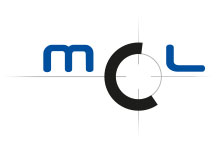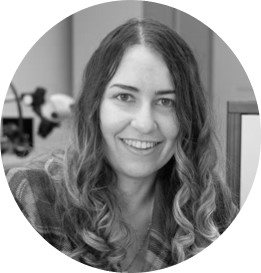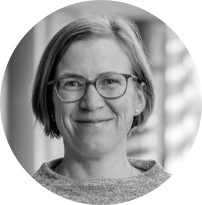The consortium as a whole

FOXES’ consortium consists of five partners from four European countries. Two of the partners are non-academic research institutions (MCL and AMO). Three of the partners (BUW, UNINOVA, UB) are universities. The diversity of the partners is the clue to FOXES’ success. Each partner, in fact, is expert and carries out activities concerning a specific part of the FOXES Power Cube.
All the three academic partners (in particular UNOVA) contribute to the 3D monolithic integration of the Power Cube. UB works on the external IoT Bundle and on the overall testing of the final node. AMO assists BUW in the preparation of the solar cells and contributes to the 3D integration of FOXES Power Cube, and leads the exploitation and dissemination tasks.

Materials Center Leoben Forschung GmbH (MCL)
Materials Center Leoben Forschung GmbH (MCL) is one of the leading Austrian institutions in the field of applied materials science, carrying out innovative research projects together with partners from industry and academia. Within MCL, the research area „Materials for Microelectronics“ develops technological innovations in the field of advanced and low-cost material processing, advanced material characterization, materials design, sensor integration, new models for load- and lifecycle calculations.
MCL is the coordinator of the project and will supervise all activities, provide budget/activities planning, data and risk management (WP2). Furthermore, MCL will be developing and fabricating the thin film capacitor part of the energy supply system (WP4) and providing 3D, mechanical and physical-chemical characterization to support the development and fabrication of the entire energy system, including capacitor, perovskite solar cell, and the related electronics (WP7). MCL will also have a leading role in exploitation and dissemination (WP8).
FOXES’s Principal Investigator: Dr. Anton Köck
Contact: Anton Köck Anton.Koeck@mcl.at
FOXES team at MCL




Bergische Universität Wuppertal (BUW)
Founded in 1972, the Bergische Universität Wuppertal (BUW) is one of the state universities in North Rhine-Westphalia. It is a modern, independent university in the Humboldtean tradition, committed to the search for truth in full awareness of its social responsibilities. Bergische Universität Wuppertal offers a diverse range of programs in science, engineering economics and the humanities, as well as educational science, design and architecture. The academic culture is marked by diversity, experience and innovation. A distinctive feature of Wuppertal University is research in interdisciplinary, cross-faculty centers.
Within the project FOXES, BUW will develop the solar cell that represent the energy harversting element of FOXES Power Cube .
FOXES’s Principal Investigator: Prof. Thomas Riedl
Contact: t.riedl@uni-wuppertal.de
FOXES’s team at BUW





AMO GmbH
The research foundry AMO GmbH is a non-profit SME specializing in R&D for micro- and optoelectronic applications. AMO acts as a pathfinder for innovative technologies for nanoelectronics and nanophotonics applications for the German and European industry. The mission is to demonstrate innovative technologies and to introduce new materials, including their implementation in novel device architectures, prototyping and small volume fabrication. The team has long-standing expertise in nanoelectronic devices, optoelectronics, nanophotonics, nanostructuring as well as in the field of graphene and 2D materials.
AMO’s role in the project FOXES is the integration of 2D materials to the perovskite solar cell. The solar-cell stack is developed in close collaboration with BUW. Furthermore, AMO is the leader of WP8 (Dissemination & Exploitation).
FOXES’s Principal Investigator: Dr. Maryam Mohammadi
Contact: mohammadi@amo.de
FOXES team at AMO




UNINOVA
UNINOVA is a R&D institute organized in centers of excellence, involving >200 researchers, and participates in the present project via the Centro de Excelência de Microelectrónica, Optoelectrónica e Processos (CEMOP). CEMOP is a center of excellence in the field of optoelectronic sensors, bio-sensors, solar cells, thin-film transistors, in collaboration with industries. Particularly relevant, is the internationally-recognized expertise and state-of-art infrastructures of CEMOP for fabrication, characterization and simulation of thin-film optoelectronic devices for flexible applications.
UNINOVA is the task leader of WP5 (Design and fabrication of electronics), having as major role the design and fabrication of the energy management circuit (EMC), which will control the energy delivered by the Power Cube. This EMC will be based on miniaturized oxide TFT technology, using an adapted nanoimprint lithography process able to imprint functional materials at nanoscale. UNINOVA also supports activities in WP3 and WP4, namely on ALD materials for interconnection in multi-junction cells, laser scribbing for via formation within the Power Cube and characterization of dielectric layers. UNINOVA is also involved in the Power Cube integration with the sensor node (WP7), as well as on advocacy, dissemination and promotion activities (WP8).
FOXES’s Principal Investigator: Prof. Pedro Barquinha
Contact: emf@fct.unl.pt
FOXES team at UNINOVA



Universitat de Barcelona (UB)
Universitat de Barcelona (UB) was founded in 1450. Today it offers degrees in 73 different areas of teaching, and it is ranked the first Spanish university, and the twenty third European institution, in scientific quality and productivity. The Department of Electronic and Biomedical Engineering hosts groups working on materials for electronics, micro and nanotechnology, electronic devices instrumentation and systems, and communications. It has close connections with industry and it is one of the few reference labs in instrumentation, sensors and systems for industry recognized as “TECNIO – Preferred Technology Supplier” by the Government of Catalonia.
The Universitat de Barcelona is developing an IoT bundle made of an ultra-low power gas sensor with power efficient wireless communications to demonstrate the utility of the Power Cube, as a continuously available energy supply for fully autonomous monitoring devices.
FOXES’s Principal Investigator: Prof. J. Daniel Prades
Contact: dprades@el.ub.edu
FOXES team at UB



